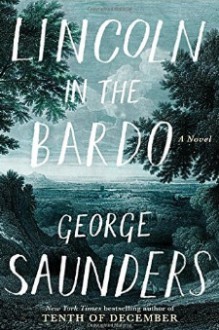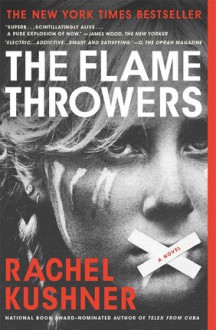
It would seem convenient, career-wise, for George Saunders to have found a novel in him after the success of Tenth of December, but if timing makes Lincoln in the Bardo seem shrewd, the writing inside will assure you that it was, in fact, inspired.
I'm not sure why I try to temper my enthusiasm for this book and Saunders generally; I suspect years of cool outlaws make siding with any sort of consensus group uncomfortable. Saunders has certainly garnered a mass of critical and audience praise but yeah, I'm going to jump on board because his writing is very good and original and relevant.
Lincoln in the Bardo is a strange and ambitious novel. It is structured almost like a play, a 300 page dialogue. The main story takes place in a graveyard among ghosts including Willie Lincoln, who has just arrived (i.e. died) and will be visited by his father, Abraham. This part is based in contemporary stories of Abe visiting his son at the cemetery at night and holding the body. Willie was just 11 when he died. Willie is greeted by our protagonists, Hans Vollman and Richard Bevins III. They, like all the other ghosts, have not accepted their situation and, as ghosts tend to, have unresolved business in life.
Interspersed throughout the novel are chapters of actual historians and contemporaries describing the times and life with the Lincolns. I was a bit concerned going into these sections, but Saunders uses a device that is common through the novel, splitting the account among many voices. The effect is kind of like a mosaic, with the scene being built, one sentence or paragraph at a time, each from a different perspective. It brings the scene home a little, like a group of friends talking over to recount some interesting event. They diverge at points, and come to consensus at others, but it comes off as something more interesting than a straight recounting. Saunders is able to dwell on interesting points, like a city of candy for a party at the Lincoln's, or the weather the night of Willy's death. It was probably much more work on Saunders point, but it removes some of the formality of the history while puncturing his story with the weight of real events, real deaths, and a real war not far to the south of these events.
The ghosts do this as well and often you'll find Bevins telling us what Vollman said then Vollman telling us what Bevins said. Being a chorus of souls who can't even acknowledge they are dead -- though they know they are dissociated from their bodies which reside in "sick-boxes" -- this is the most honest way of accounting for beings that are too busy looking at everyone else to notice their own situation. Everyone apart from the two Lincolns.
Saunders' voice is something like the literary equivalent of artisinal hamburgers or secret shows in Brooklyn speakeasies, it's high art masquerading as everyday objects. For the most part, he reflects spoken language, often dropping articles and subjects, or inflecting statements with interrogative properties. (Like, writes it so it sounds unsure, as if you're asking a question.) But it's not really speech, that would make for shit writing. He's always leading, pulling you to a particular emotional state where he can drop the next reveal on you.
Lincoln in the Bardo does what I think is most amazing about Saunders: His most sorrowful stories are somehow his most heartening. I saw Saunders speak at the Free Library of Philadelphia and he ended talking about the book as an acknowledgement not just of our own mortality, but everyone's: everybody you love will die. This was on Valentine's Day.
Loss is a pretty clear theme in the book, it is about ghosts, after all. Lincoln is having to bury his child, and deal with the fact that he is sending many young men to die in a war at the same time. The ghosts are powerless in the world, they cannot find resolution through their actions. The futures they see will never come about, and what comes next is, if nothing else, inevitable, and the focus on postponing that next place is ultimately fruitless.
Still, this realization comes with a (relatively) light touch. Something in how Saunders makes it common, makes his characters one of many. It's not the sad, impotent thrashings of a raving hero striking at the sea, it's a family at the end of a tough day sitting together for a quiet moment. It reminds me of Whitman:
"That you are here -- that life exists and identity,
That the powerful play goes on, and you may contribute a verse."
The point isn't that life/love/humanity/Firefly will end, but that life happened, isn't that miracle enough? Saunders is more clever than to hammer you in the head with it like I do, but that's what I take from it, and what many seem to -- his work is often noted for it's "humanity" whatever you make of that. Despite the real horror of some of his novels, and many decidedly tough endings, there is something affirming in the story, something hopeful. Bravery, usually, often of the less obvious sort.
The novel has its flaws, most noteworthy I'd say that Saunders has trouble smoothing out some very modern speech patterns. I'm not holding him to a real high standard on this one, he said in his talk that he wasn't trying to go full method actor or anything though he worked to strike things to obvious like "friggin". Still, in a couple parts it was a little distracting to hear someone who spoke like they had seen more than one Keanu Reeves movie.
I highly recommend this to all readers of fiction. One nice thing is the dialogue structure seems to pull you along and also depress the word count so it is a very quick read.
Happy Reading!

 Log in with Facebook
Log in with Facebook 








